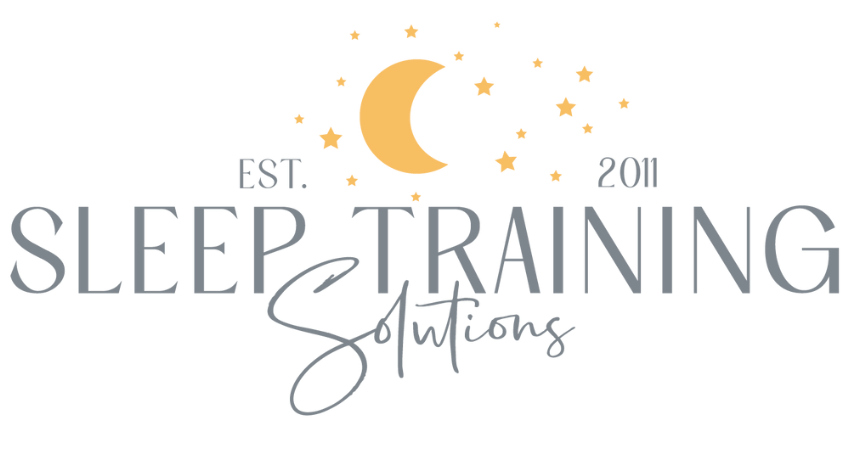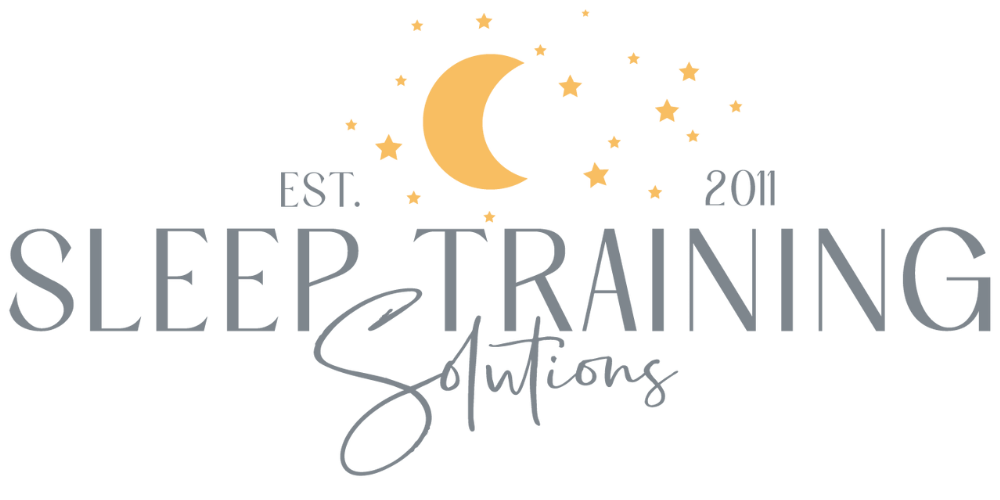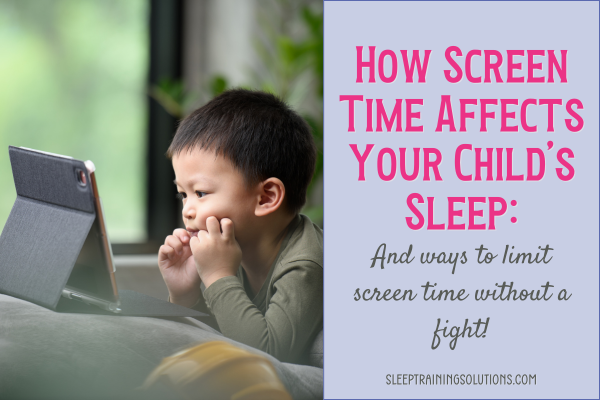Is it 'Just a Phase', a Sleep Regression or a New Habit?
Sleep Regressions vs Habits
When your baby or toddler suddenly starts waking up in the middle of the night, refusing naps, or fighting bedtime, it’s easy to brush it off as a phase. But how do you know when it’s just a temporary sleep regression versus when it’s become a bad sleep habit? Understanding the difference is key to getting your child back on track and ensuring everyone in your household gets the rest they need.
In this post, we’ll dive into how to identify temporary sleep disruptions (like growth spurts, regressions, or medical issues) and when those disruptions turn into overtired baby habits that may require a more structured solution.
Sleep Regressions vs. Bad Sleep Habits: Know the Difference
What Is a Sleep Regression?
A sleep regression is a temporary disruption in your baby’s sleep patterns due to developmental milestones. These regressions often happen at predictable times, such as:
4 months: Your baby’s sleep cycles mature, causing more frequent wake-ups. For more info on this, check out this post: 4 Month Old Sleep: Regression, Schedule and Tips
8-10 months: Crawling, pulling to stand, and separation anxiety kick in.
18 months: A surge in independence and language development.
2 years: Toddler sleep regressions can be triggered by boundary testing, nightmares, or fears.
These regressions typically last 1-2 weeks. If your child’s sleep issues persist beyond that timeframe, you may be dealing with a bad sleep habit rather than a regression.
And if you reintroduced old sleep props during the regression, there’s a good chance your child will want to hold on to them once the regression passes.
What Is a Bad Sleep Habit?
A bad sleep habit forms when temporary disruptions aren’t resolved and become ingrained. For example:
Your toddler wakes up at night and you always offer a bottle — now they expect it.
Your baby needs rocking or nursing to fall asleep — now they can’t self-soothe.
Your child crawls into your bed every night — now it’s a nightly routine.
Your child asked you to lay down on the floor next to the crib or on a air mattress in his room — now they want you to sleep there all night.
Bad sleep habits don’t resolve on their own. The longer they persist, the harder they are to break. It’s MUCH easier to correct a sleep habit that’s new vs one that’s been around for month – or years! However, with the right strategies, you can gently guide your child back to healthy sleep habits.
Why Sleep Issues Become Habits After 2 Weeks
The 2-week rule is an important benchmark for parents. If a sleep issue lasts longer than 2 weeks, it’s likely become a habit. Before hitting that mark, it’s worth considering whether the disruption could be caused by:
1. Developmental Milestones
Babies and toddlers are constantly learning new skills, from rolling over to talking. These milestones can temporarily disrupt sleep as their brains and bodies are working overtime.
Tip: During regressions, give your child extra practice time during the day to master their new skills. If your baby is learning to stand, for example, practice standing and sitting during playtime so they’re less likely practice mastering it in the crib.
2. Growth Spurts
Growth spurts can cause your baby to be hungrier, more restless, and generally out of sorts. These typically last a few days to a week.
Tip: If your baby is waking up hungry, try adding an extra daytime feeding (or extra ounces in each feed) rather than a night feed to help them adjust. For toddlers, make sure their snacks are nutritious – higher in protein and fats, not just empty carbs.
3. Illness or Discomfort
Ear infections, teething, or other illnesses can wreak havoc on sleep. If your baby has suddenly developed sleep issues, rule out medical causes first.
Tip: If your child is congested or teething, try using a cool mist humidifier (this one you fill from the top and don’t spill when the tank is flipped over!) to improve comfort, nasal spray (this one actually helps clear nasal passages) and/or clearing their nasal passages before sleep.
Recognizing Overtiredness and Breaking the Cycle
One of the most overlooked causes of persistent sleep issues is overtiredness. An overtired baby or toddler actually has a harder time falling asleep and staying asleep because their bodies release stress hormones like cortisol and adrenaline.
Signs Your Baby or Toddler Is Overtired
Fighting bedtime
Waking frequently at night
Short, inconsistent naps
Early morning wake-ups
Tip: If your toddler is overtired and resisting bedtime, make sure to do a consistent 30-minute bedtime routine. This could include a bath, playtime (not technology) and reading books during this 1-1 time with a parent to help them wind down. Here is a list of great bedtime books to read to your baby or toddler.
Preventing Bad Sleep Habits
1. Create Predictable Sleep Routines
Babies and toddlers thrive on routine. A consistent bedtime routine signals that sleep is coming.
Tip: Make your bedtime routine predictable. For example, make a bedtime routine chart that your child can check off steps in the same order every night. Make it fun but don’t let your child stall and add 32 more steps to the routine.
Do you dread doing the bedtime routine? Check out this blog post: 9 Easy Tips to Enjoy Your Child’s Bedtime Routine More
2. Focus on Sleep Environment
A dark, cool, quiet room is essential for good sleep - 68-70 degrees F is a great sleeping temperature for babies and toddlers. Make sure you have good blackout shades that actually block out that perimeter light. Use a white noise machine that is continuous (doesn’t cycle) and place it between the bed and where the most noise usually comes from
Tip: Use a decibel meter app to make sure it’s not too loud for your child’s ears – 50 decibels or less is good for children. Place your phone in the child’s bed (when your child isn’t IN bed!) to test the level they would hear.
3. Respond, But Don’t Over-Engage
When your baby or toddler wakes up at night, it’s natural to want to comfort them. However, over-engaging can reinforce bad sleep habits. This is the main premise of sleep training – to teach them how to self-soothe back to sleep without YOU doing the work for them!
When to Get Help for Persistent Sleep Issues
If your baby or toddler’s sleep issues persist beyond 2 weeks, it’s time to consider whether a bad habit has formed.
If you’re struggling with night wakeups, check out this blog post: 8 Reasons Why Your Baby Isn’t Sleeping Through the Night.
If you have a toddler that’s trying to climb out of the crib and stall at bedtime, check out this blog post: 2 Year Olds That Stall at Bedtime, Climb Out of the Crib and Wake All Night!
The good news is that bad habits can be broken — but it may require personalized guidance.
Signs You May Need Extra Help:
Your toddler’s bedtime routine takes more than 45 minutes.
You always put your baby (or toddler) down in the crib already asleep.
Night wakings are becoming more frequent.
Your child can’t fall asleep without a specific sleep prop (e.g., rocking, nursing).
If you’ve tried adjusting routines, addressing overtiredness, and ruling out medical issues, and you’re still struggling, a personalized sleep plan can make all the difference.
Tip: If this is something you struggle with and your child needs you to do 90-100% of the work to get her back to sleep, schedule an evaluation call to see how I can help get things back on track so your child starts sleeping 11-12 hours straight over night!
Sleep Disruptions vs. Habits — Know When to Take Action
Short-term sleep regressions are normal and often resolve on their own within 1-2 weeks. However, if sleep issues persist beyond that, it’s likely that your baby or toddler has developed a bad sleep habit that needs to be addressed.
By identifying the root cause of sleep disruptions and implementing the right strategies early on, you can prevent long-term sleep struggles. And remember, if you need personalized support, I’m here to help you create a sleep plan that works for your family.
To learn about the process of working with me 1-1 to start seeing results in as little as 3 nights, schedule an evaluation call here. If you’re more DIY and just want the info to get things going on your own, grab instant access to my baby sleep course – Teach Your Baby to Sleep (use this link for a discount!)
Baby and Toddler Sleep Regressions
Related Posts:
Please note that some of this site’s links are affiliate links, and Sleep Training Solutions is a participant in the Amazon Services LLC Associates Program, an affiliate advertising program designed to provide a means for sites to earn advertising fees by advertising and linking to Amazon.com and affiliated websites. I will earn a small commission, at no additional cost to you, if you purchase them.
This post is for informational purposes only and may not be the best fit for you, your child and/or your personal situation. It shall not be construed as medical advice. The information and education provided here is not intended or implied to supplement or replace professional medical treatment, advice, and/or diagnosis. Always check with your child’s physician or medical professional before trying or implementing any information read here.





